April 24, 2025 | 05:46 GMT +7
April 24, 2025 | 05:46 GMT +7
Hotline: 0913.378.918
April 24, 2025 | 05:46 GMT +7
Hotline: 0913.378.918
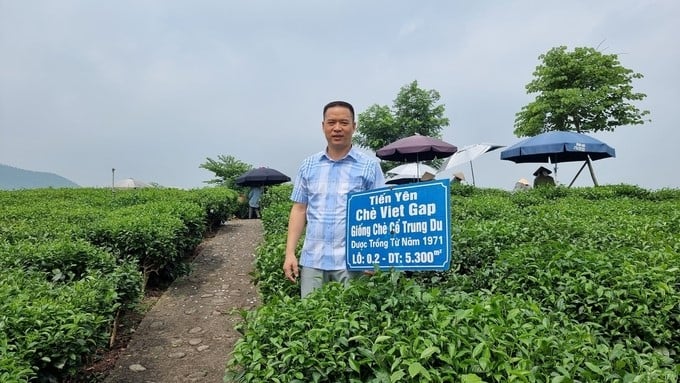
Mr. Bui Trong Dai, Director of the Tien Yen tea and community tourism cooperative. Photo: Toan Nguyen.
About 500 m from provincial road 267 running through the center of Tan Cuong commune, there lies a beautiful tea hill. Mr. Bui Trong Dai is the first person in Tan Cuong to open a tea production - business model combined with community eco-tourism.
After several years of the COVID-19 pandemic, the Tien Yen Tea and Community Tourism Cooperative of the 43-year-old man is now welcoming tourists again. "International tourists like to directly discover and experience the culture and people of the 'most famous tea' land. Vietnamese tourists also come here, but only occasionally, mainly aiming to experience cuisine, go a few rounds to take pictures, buy some Tan Cuong specialty tea as a gift, and then they leave. Perhaps even Vietnamese have yet to feel the full value of the culture, land, and people of Tan Cuong".
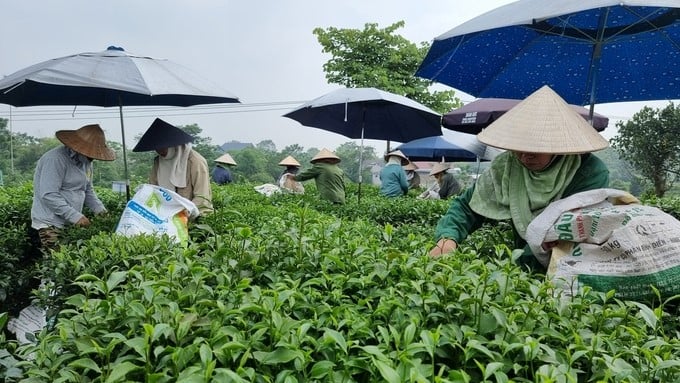
Experiencing the life of tea growers at Tien Yen Tea and Community Tourism Cooperative. Photo: Van Viet.
Tien Yen Tea and Community Tourism Cooperative was established roughly ten years ago, when the concept of community tourism was still quite new. Many tourists came to Tan Cuong just to breathe the fresh air under the vast sky, enjoy the tea fragrance in the hill gardens, and pluck a tea bud and drop it into their mouth to sip the sweet, acrid taste.
having that as a foundation, Mr. Dai found a way to turn Tan Cuong’s values into money. "Now, not only we make clean and delicious tea but also learn how to blow ‘soul’ into tea and tell people about its stories so that every tourist coming to Tan Cuong can experience its beauty in full," said Mr. Bui Trong Dai.
Under the leadership of Mr. Dai, comprehensive change took place in Tien Yen Tea and Community Tourism Cooperative. The first change was in the farming practices and production processes. The cooperative director thoroughly understoood that it is impossible to promote tourism and improve the value of Tan Cuong tea if people continue to use chemicals. The members need to convert to organic, environment-friendly cultivation to both ensure the health of the people and the quality of the products. When the fish pond under the people’s tea gardens become a place where fish and frogs can live, then our tea products is safe.
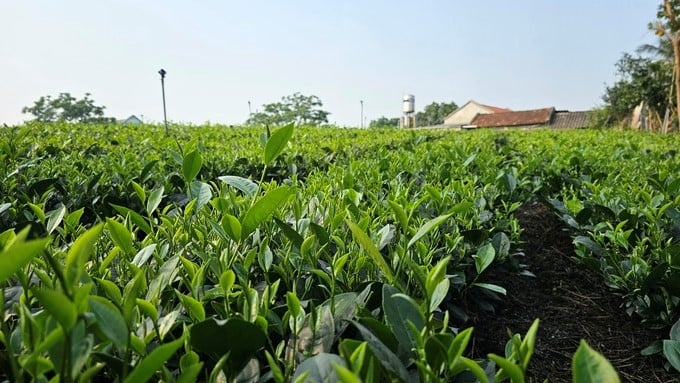
Tan Cuong clean tea. Photo: Hoang Anh.
Tien Yen is also a pioneer cooperative to build a tour of experiencing tea land. Tourists can come directly to the hill and pluck tea buds, work with artisans in the tea processing stages, or cycle to explore Tan Cuong and neighboring places such as Nui Coc lake, Tam Dao mountain, etc.
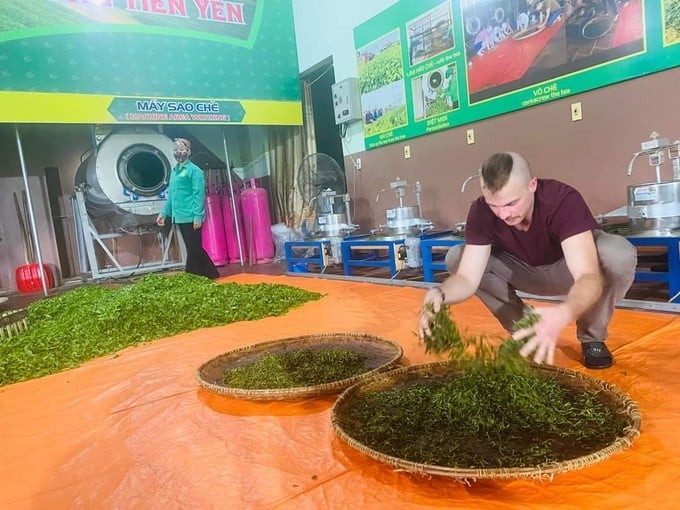
Foreign tourists experience the tea-making profession at Tien Yen Tea Cooperative and Community Tourism. Photo: Toan Nguyen.
And it was also the director of Tien Yen Tea and Community Tourism Cooperative who initiated the stories of Tan Cuong tea. That's the story of Dinh Vuong Tra. When made, the tea has a yellow color similar to the color of young green rice, a subtle, mild fragrance, and a greasy, acrid taste. When drunk for a long time, it remains sweet in the throat, creating a unique taste. Or the story of Dinh Thai Tra, which is plucked by the skillful hands of village girls who wake up early in the morning while the tea buds are still catching the dew. The tea is then dried, the mould is made, and the fragrance is released thanks to the skillful hands of Tan Cuong artisans.
Gradually, stories about Tan Cuong tea became the manual for cooperative members. Whenever there is a group of tourists to visit, the young and old here can tell the stories with pride.
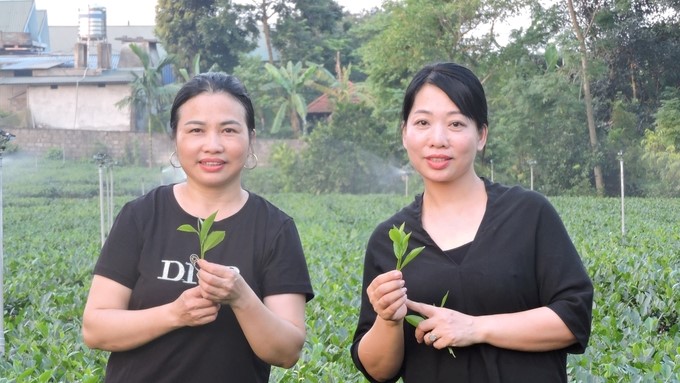
Community tourism in the Tan Cuong tea cultural space. Photo: Van Viet.
Starting from the model of Tien Yen Tea and Community Tourism Cooperative, Tan Cuong now has many cooperatives combining the tea profession with community tourism, such as Hao Dat, Tam Tra Thai, Huong Van Tra, Thang Huong, etc.
A space for culture and tourism in Tan Cuong tea land is being built and expanded day by day. In that space, each cooperative has its own story, but after all, it is the desire to improve the value and stature of the tea profession, land, and people of Tan Cuong.
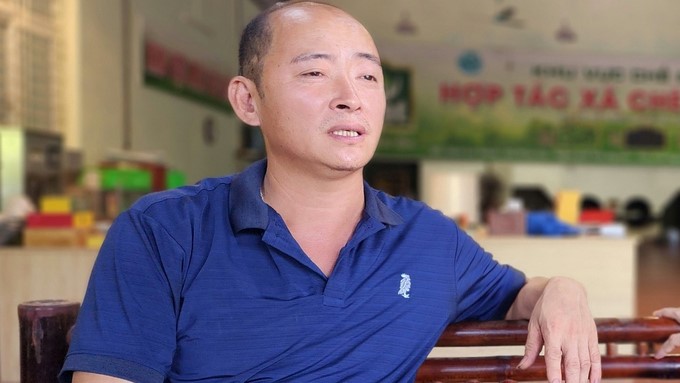
Mr. Nguyen Viet Thuat, the first organic tea maker in Tan Cuong. Photo: Hoang Anh.
The story of Mr. Nguyen Van Thuat, Director of Thuy Thuat Tea Cooperative, has long been an inspiration to those who dream of making tea "the right way". From a cooperation group with only three members following the path of tea production according to the VietGAP process, Thuy Thuat Tea Cooperative became the first unit in the whole city of Thai Nguyen to be certified and recognized for tea production meeting organic standards.
Importantly, following the success of Mr. Thuat, during the 2020-2022 period, Thai Nguyen Agriculture Extension Center has implemented a model of organic tea production according to Vietnamese standards with a scale of more than 60 ha in the Tan Cuong tea land and other tea areas in the province such as Song Cau, La Bang, and Tuc Tranh.
186 households participating in the model concluded that organic tea production gives incomes about VND 100 million/ha higher than ordinary tea production. The environmental values are restored, the health of tea growers is guaranteed, Tan Cuong tea products are also diversified, and the value is enhanced.
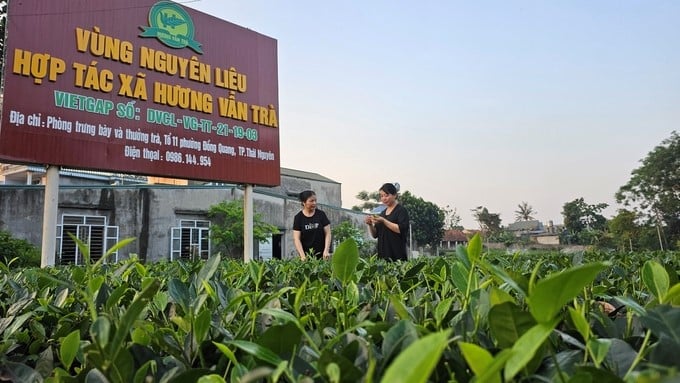
Raw material tea area of Huong Van Tra Cooperative. Photo:Toan Nguyen.
Also having a burning passion for Tan Cuong tea, Ms. Nguyen Thi Huong Van, Director of Huong Van Tra Cooperative, has invested in building a sizeable tea-enjoying cultural space in the center of Thai Nguyen city. This is probably the first model that integrates all the quintessential values of Thai tea in an intimate space.
In the near future, the tea land wishes that Thai tea will become a national brand that can be exported to the most demanding markets. Thanks to the pioneers in the “most famous tea” land, that road seems to be shortening.
Translated by Huyen Vu Thu
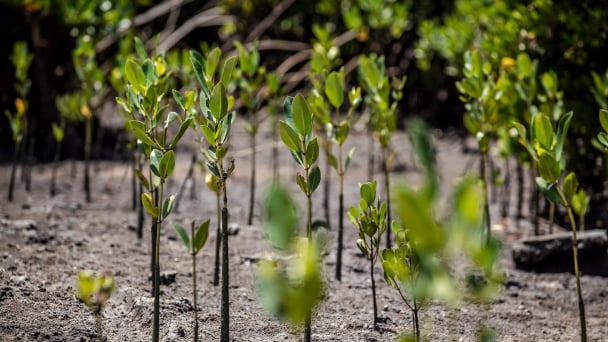
(VAN) Cutting-edge technology and data will bring transparency and accountability to global restoration commitments under the Kunming-Montreal Global Biodiversity Framework.
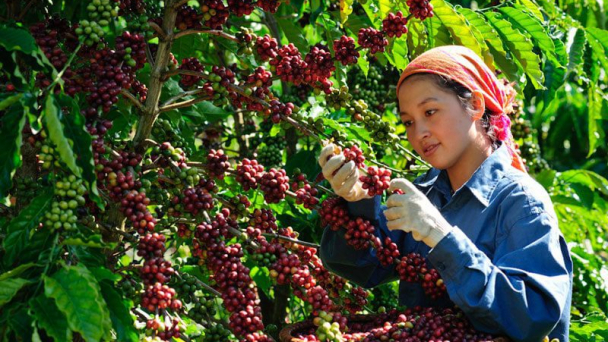
(VAN) The SAFE project in Vietnam will support actors in the coffee supply chain in meeting the requirements of the EUDR and conserving forest ecosystems.
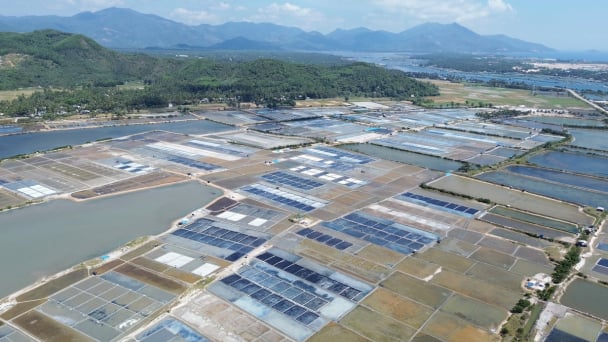
(VAN) On April 22, the United Nations Development Program (UNDP) worked with a group of local farmers from Tuyet Diem village and representatives of Xuan Binh commune, Phu Yen province.

(VAN) At the close of the P4G Summit, delegates agreed to transform agricultural and food systems sustainably, ensuring food security while protecting the environment.
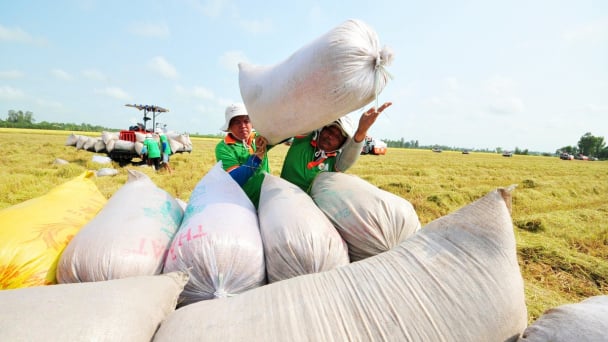
(VAN) The rice industry in the Mekong Delta is undergoing a major transformation, shifting toward sustainable, high-quality, and low-emission exports to meet the green and clean standards increasingly demanded by international markets.
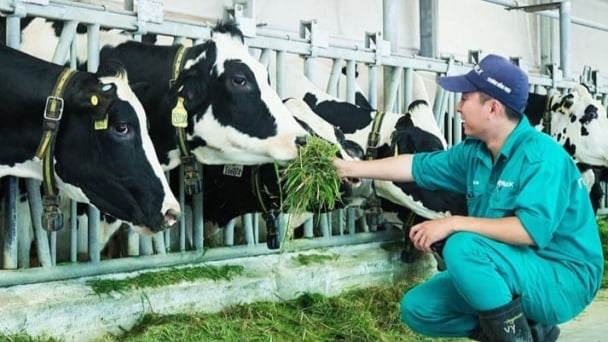
(VAN) According to Tong Xuan Chinh, Deputy Director of the Department of Livestock Production and Animal Health, Vietnam’s dairy cattle industry must overcome seven major challenges to achieve sustainable development.
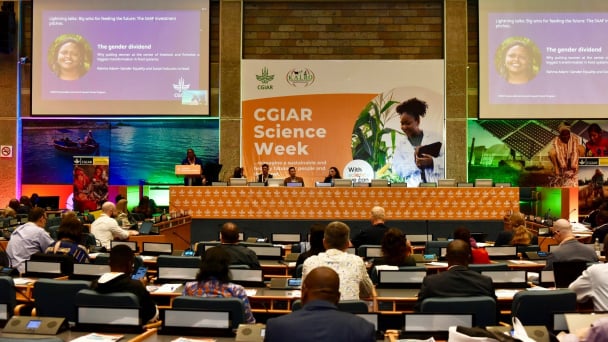
(VAN) The CGIAR’s Sustainable Animal and Aquatic Foods (SAAF) program represents a new approach that emphasizes the transformation of food systems toward sustainability.